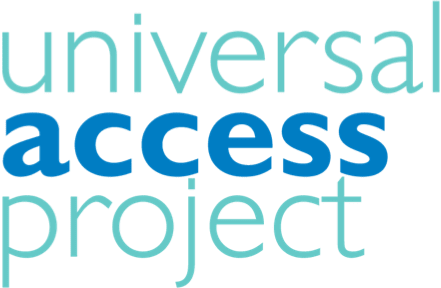Reimagining success in the movement for SRHR and women’s empowerment starts with justice
By Dilly Severin
As a young girl growing up in Saint Lucia, I internalized an unwritten rule that I saw playing out all around me: an unintended pregnancy could cost you your future. At the time, emergency contraception and abortion were not options for most girls or adolescents. If you got pregnant, school was effectively off the table — no more learning, no more schoolmates.
From my perspective, it was like starting to write a book and abruptly ending it after the first chapter. The beauty and promise of the full story would never be revealed.
Even back then, I intuitively understood the through line from sexual and reproductive health and rights to justice. I was—and still am—surrounded by reminders of all the ways that justice can be thwarted: by not providing comprehensive sexuality education in public schools, by allowing and encouraging child marriage, by not criminalizing marital rape, and by ensuring girls and adolescents facing an unintended pregnancy had no option other than to become a mother years before they were ready.
And while girls in Saint Lucia are faring better today than they were when I was growing up, globally the challenges are more pressing than ever. Sexual and reproductive health and rights and bodily autonomy remain under attack by the political opposition, including and especially in the United States. The rights and power of women and gender diverse communities are being increasingly eroded worldwide. Economically, the value women bring to the workforce, their communities and to society is often overlooked or actively undermined.
I have devoted my career to working with organizations that aim to heal injustice by fighting for sexual and reproductive health, rights and justice (SRHRJ) and gender equality. Now it is my great privilege to lead the Universal Access Project (UAP), whose work I have long admired.
Over the past 15 years, UAP has established itself as a powerful convening platform where we can have the hard conversations about how the SRHRJ community can be most effective. Through its work to advance U.S. foreign policy on SRHR and drive private sector action to support the health, well-being and empowerment of women in global supply chains, UAP has set out to reinvigorate and recalibrate U.S. and global conversations on these topics.
Moving forward, I see this continual recalibration as core to the work of this community—we must challenge the status quo, without apology, while also honoring the many contributions that have gotten us this far. Ultimately, I believe this is how we’ll advance a new justice agenda, in which everyone’s right to bodily autonomy is respected, power structures are rebalanced, and all people are met where they are now.
There are four key areas that require recalibration:
Power: While the work to decolonize global health is well underway, we must redouble our efforts to recalibrate who holds power. This entails rebalancing the ecosystem of players by bringing new and catalytic actors to the table, including corporations and civil society. UAP’s work in private sector action, namely the Resilience Fund for Women in Global Value Chains we helped launch two years ago, is working to break traditional corporate philanthropic molds to lift up women-led, locally driven solutions. The Resilience Fund is demonstrating that, not only is there a business case for investing in women’s health, but that women themselves are best suited to set the agenda.
Funding: Part of meeting communities where they are means taking an intersectional approach to SRHRJ, and breaking down traditional funding and programmatic siloes. While protecting dedicated vertical funding for SRHRJ is more essential than ever, we also need to ensure that the SRHRJ agenda is embedded across sectors—including humanitarian, maternal health, HIV/AIDS, economic empowerment, and youth development. UAP embodies this cross-hatch approach, championing continued vertical funding through our foreign policy work, while also promoting intersectionality through the Resilience Fund and other private sector initiatives. Here we can draw inspiration from the long-standing efforts of the SRHRJ community to set a bold and progressive U.S. foreign policy agenda, and hold decision makers accountable through The Blueprint for Sexual and Reproductive Health, Rights, and Justice and platforms like the Feminist Foreign Policy Collaborative.
Language: As someone who worked in communications and advocacy for years, I know that language matters. When we move more intentionally to shifting power and an intersectional approach, the way we talk about our issues must evolve as well. It is easy to become jaded by language that doesn’t reflect the severity of a situation. By providing a collaborative space where we can wrestle with uncomfortable topics, including our vernacular, UAP can help lead the way in ensuring our language truly matches our ambition.
Impact: As we rethink all of the above, we also need to reevaluate how we are measuring and assessing the impact of our work. First, we need more and better data, including more gender disaggregated data as well as qualitative data around the lived experiences of women, girls and gender diverse people. We also need to establish a new learning agenda for SRHRJ. For example, what can the SRHRJ community learn from advocates in Brazil and other Latin American countries that are successfully bringing about positive changes for the SRHRJ landscape? I hope that UAP can offer a platform for strategizing about data and evidence and crafting a new learning agenda.
It’s clear we have our work cut out for us—the obstacles loom large. Yet in many respects the change we want to see is within our control.
If we remain united, nimble and open to self-interrogation and recalibration, this dynamic collective of partners can truly forge a new justice agenda. I look forward to listening deeply and holding space for meaningful dialogue in my new role. Let’s move towards a future where every person's full story can be written no matter their gender.
